
Research led by the University of Michigan arrived at a surprisingly unsurprising result while assessing the sustainability gap between public transit and services like Uber and Lyft.

Climate change is caused and accelerated primarily by the burning of carbon-based fossil fuels: coal, oil, and natural gas. Impacts of the climate crisis depend on the scope, speed, and willingness of society to transition to a low- or zero-carbon economy. University of Michigan experts are leading new green fuel development and assessing the continued viability of fossil fuels, the economic and environmental harm that they exact on society, and innovations toward carbon management. Researchers are focusing on everything from gains in fuel efficiency to developments, investments, and innovations toward a circular carbon economy. Central to this analysis is the Global CO2 Initiative, which aims to turn a liability into an asset through the development of CO2 removal and utilization technologies and solutions.

Research led by the University of Michigan arrived at a surprisingly unsurprising result while assessing the sustainability gap between public transit and services like Uber and Lyft.

According to a new report from the Center for Sustainable Systems, the Big Ten’s 2024 expansion will more than double the average conference game emissions for the University of Michigan football team.

Spencer Checkoway, a research assistant at the School for Environment and Sustainability (SEAS) Center for Sustainable Systems (CSS) is first author of a new study, "Carbon and energy footprinting across archetypes for U.S. maple syrup production." He answered five questions about the study, its findings and the main recommendations made by the authors. The other authors of the study are SEAS Professor and CSS Co-Director Gregory Keoleian and CSS Research Specialist Geoffrey Lewis.
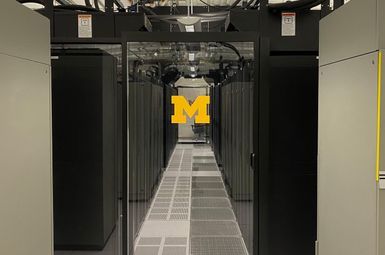
Smarter use of processor speeds saves energy without compromising training speed and performance

Small modular nuclear reactors, or SMRs, could help the U.S. meet emissions goals while also satisfying growing energy demands. Although the U.S. has not powered up an SMR yet due to some deployment challenges, cost and complexity, new research from the University of Michigan shows that they are an economically viable option. Max Vanatta, School for Environment and Sustainability (SEAS) doctoral student is the lead author. The other authors are SEAS Assistant Professor Michael Craig and Robb Stewart, chief technology officer of Alva Energy.
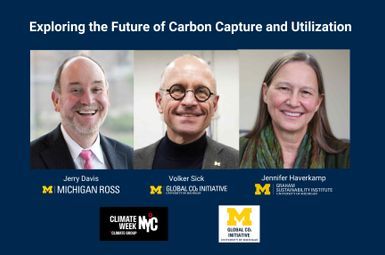
Carbon-based products are central to our economy, yet urgent action is needed to combat climate change. As part of Climate Week NYC, the Global CO2 Initiative held a discussion how carbon capture and utilization can mitigate the negative impacts of fossil fuel use, addressing the technology’s economic and social impacts, as well as its challenges.
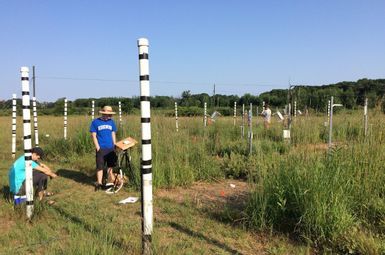
In a new long-term ecological experiment, researchers showed that elevated levels of carbon dioxide nearly tripled species losses in grasslands attributed to the long-term application of simulated nitrogen pollution.

"Any product that undergoes significant processing is going to have some carbon footprint, and maple syrup is no different. However, maple farmers get to tell a different story because they are the stewards of a resource that they tap into year after year."
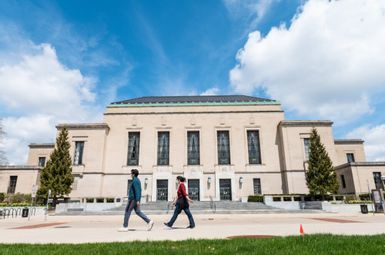
This year’s survey will focus on critical topics including carbon neutrality, transportation, waste prevention, climate change, and food sustainability. New questions on climate anxiety will explore respondents' feelings about climate issues and their experiences with direct impacts.

At the core of Campus Plan 2050 is a commitment to sustainability. The initiative proposes innovative infrastructure solutions, including geo-exchange systems designed for efficient heating and cooling through ground-source heat pumps, as well as extensive building retrofits that enhance energy efficiency and sustainability, and efficiency upgrades to the transit system.
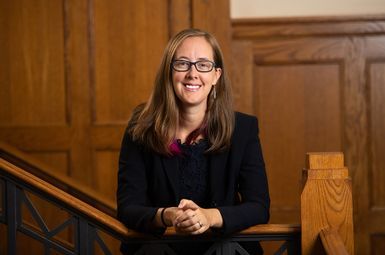
The United States’ struggle to build electricity transmission capacity connecting low-cost producers has environmental and economic consequences for energy companies.
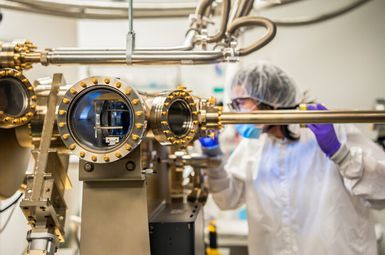
The system produces ethylene, an important ingredient of many plastics, with much higher efficiency, yield and longevity than competing systems.

Artisanal and small-scale mining plays a critical role in supplying the world with minerals vital for decarbonization, but this kind of mining typically lacks regulation and can be socially and environmentally harmful.
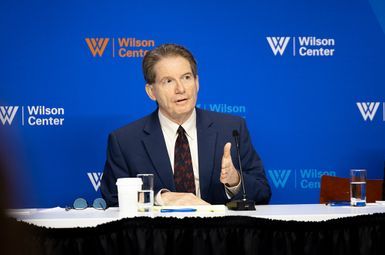
Despite ongoing geopolitical tensions, the United States and China have the opportunity to collaborate on reducing methane emissions, a critical greenhouse gas significantly contributing to about 30 percent of global warming.
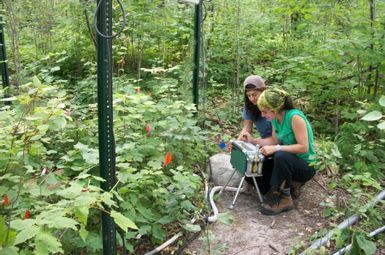
The soils of northern forests are key reservoirs that help keep the carbon dioxide that trees inhale and use for photosynthesis from making it back into the atmosphere. But a unique experiment is showing that, on a warming planet, more carbon is escaping the soil than is being added by plants.
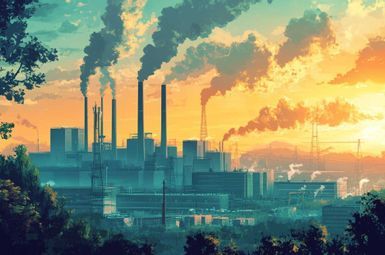
For carbon capture and utilization (CCU), public support depends on which aspect of the technology is being considered and which people are considering it, according to a new study conducted by researchers from University of Michigan and other institutions.
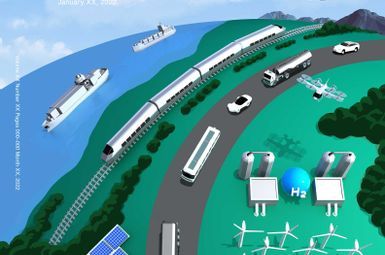
Green hydrogen is emerging as an important potential solution for decarbonizing transportation, but new energy efficiency findings indicate that it should be used strategically in heavy-duty road, rail, aviation and marine transportation, a U-M study shows.
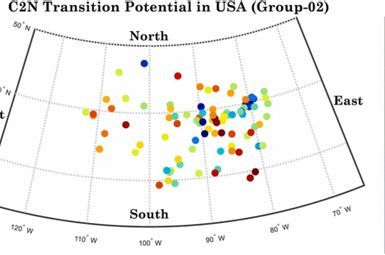
An assessment ranks the feasibility of converting 245 operational coal power plants in the U.S. into advanced nuclear reactors, providing valuable insights for policymakers and utilities to meet decarbonization goals, according to a new study by University of Michigan researchers.

Nestled by the St. Clair River, a small rural neighborhood in St. Clair Township, Michigan, is surrounded by a high concentration of hazardous crude oil and natural gas facilities. For decades, Murphy Drive residents have been exposed to unreported chemical releases, oil spills, poor air quality and harmful odors.
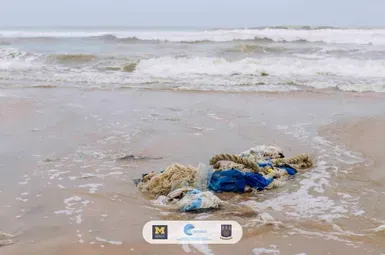
“As people are worried about climate, we shouldn’t forget that a big part of the climate story is the ocean, which stores and transports a lot of heat and carbon.”
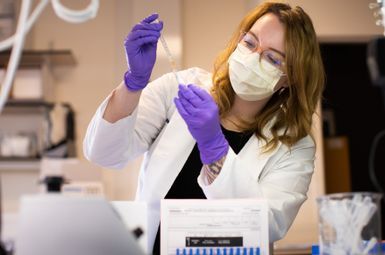
Changing how often a popular cancer therapy is delivered would reduce greenhouse gas emissions and improve environmental impact without decreasing cancer survival, according to an analysis from researchers at the U-M Health Rogel Cancer Center.

About a third of the food produced globally each year goes to waste, while approximately 800 million people suffer from hunger, according to the U.N.’s Food and Agriculture Organization.
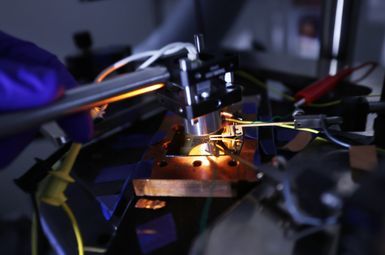
Heat batteries could store intermittent renewable energy during peak production hours, relying on a thermal version of solar cells to convert it into electricity later.

A costly step in the process of taking carbon dioxide emissions and converting them into useful products such as biofuels and pharmaceuticals may not be necessary, according to U-M researchers.
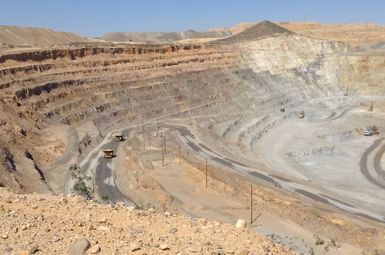
Copper cannot be mined quickly enough to keep up with current U.S. policy guidelines to transition the country’s electricity and vehicle infrastructure to renewable energy, according to a U-M study.

The new projects include “Plast-ick,” which leverages AI and satellite data to predict pollutants like PFAS in water bodies; “Catching the Waves,” which focuses on deploying wave energy converters to power remote coastal communities; and "Mussel Roads," which uses biomimicry to enhance asphalt durability by developing materials inspired by mussel-binding proteins.

Eighth graders from Henderson Academy in Detroit were the first to build and race model hydrogen cars at the Michigan Engineering Zone.

In a new effort to support decarbonizing the maritime shipping industry, U-M has entered into a strategic partnership with the Copenhagen-based Mærsk Mc-Kinney Møller Center for Zero Carbon Shipping.

For long-haul routes below 300 miles, electrification can reduce air pollution and greenhouse gas damages by 13%, or $587 million annually, according to the study. For long-haul routes above 300 miles, electrification of just the urban segments facilitated by hub-based automation of highway driving can reduce damages by 35%, or $220 million annually.

U-M is marking late March and all of April with a series of events focused on sustainability and climate action, continuing a tradition that began with the first “Teach-In on the Environment” in 1970—which grew into what is now known as Earth Day.

"Train travel in America is much more limited than, for example, in Europe. You often can’t get where you want to go. But you can get to Lincoln from Ann Arbor, with just one change in Chicago. What’s the carbon savings? A flight to Lincoln would add about 800 kg of CO2 emissions to my annual budget. The train trip is more like 85 kg. Takes more time, for sure, but that’s a big part of why emissions from train travel are so much lower."
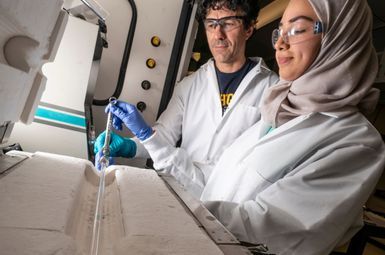
A new way to make an important ingredient for plastics, adhesives, carpet fibers, household cleaners and more from natural gas could reduce manufacturing costs in a post-petroleum economy by millions of dollars, thanks to a new chemical reactor designed by U-M engineers.

What materials and methods will allow us to design and construct low-carbon buildings? How can architects and designers promote social justice through community ownership of land? Through its Pressing Matters grant program, Taubman College has funded five faculty-led research and creative practice projects that address these questions.

Mushrooms come with a seemingly endless list of things that make them unique, including some that glow in the dark, some that are poisonous, and others that have been living for thousands of years. In the natural world, they are known as efficient decomposers and fast growers that play an integral role in maintaining and restoring the ecosystem.
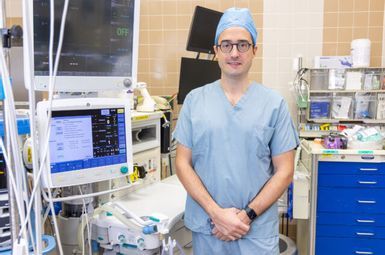
The Green Anesthesia Initiative, or GAIA — an homage to the personification of Earth in Greek mythology — was established in 2022 by the Department of Anesthesiology. Its initial goal, now surpassed, was to reduce emissions from inhaled anesthesia by 80% within three years from a 2021 baseline, while ensuring patient safety.
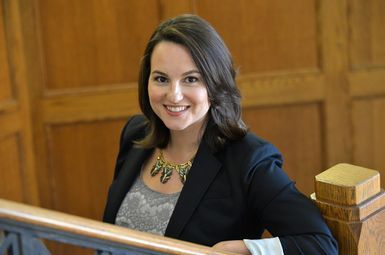
The United States recently passed major climate change laws, such as the Infrastructure Investment and Jobs Act (IIJA), the Inflation Reduction Act of 2022 (IRA), and the CHIPS and Science Act, which allocate funding with a goal of expanding energy-transition initiatives. Analysts suggest new investments could reduce greenhouse gas emissions by more than 40% below 2005 levels by 2030.

A new U-M-led international study finds that fruits and vegetables grown in urban farms and gardens have a carbon footprint that is, on average, six times greater than conventionally grown produce.

Climate change is reshaping forests differently across the United States, according to a new analysis of U.S. Forest Service data. With rising temperatures, escalating droughts, wildfires and disease outbreaks taking a toll on trees, researchers warn that forests across the American West are bearing the brunt of the consequences.
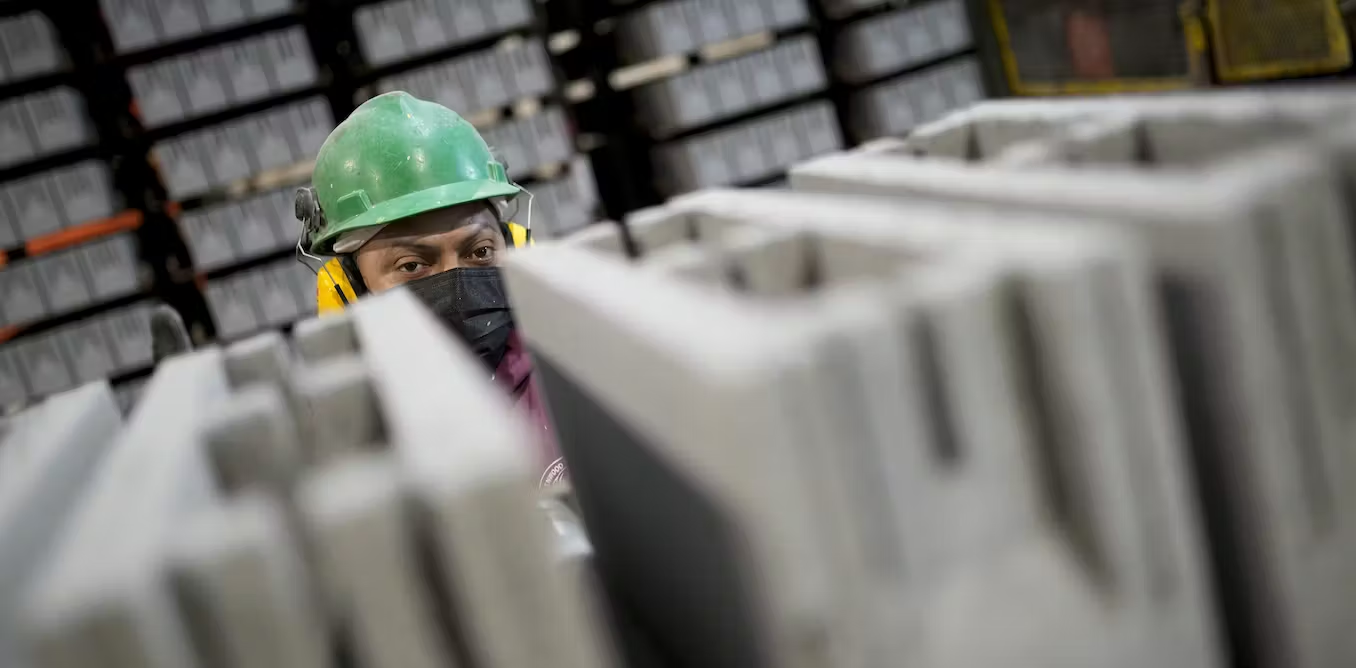
Capturing carbon dioxide from the air or industries and recycling it can sound like a win-win climate solution. The greenhouse gas stays out of the atmosphere where it can warm the planet, and it avoids the use of more fossil fuels. But not all carbon-capture projects offer the same economic and environmental benefits. In fact, some can actually worsen climate change.

"“And the warming will continue to accelerate until we halt the burning of fossil fuels. This means continued worsening extreme heat and heat waves, but also many other worsening climate extremes driven by warmer temperatures. More severe droughts, more intense rainfall, more devastating hurricanes and bigger, more widespread wildfires."
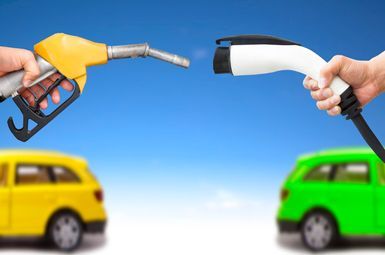
Is it actually cheaper to own an electric vehicle instead of a gas vehicle? It depends. U-M researchers say that where you live matters. For instance, a midsize SUV costs more to own in Detroit than in San Francisco—one of the most expensive cities in the country.
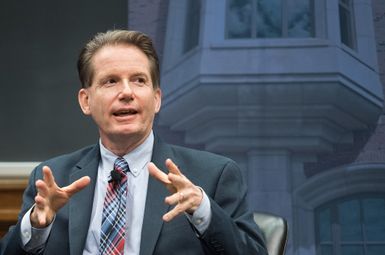
At the COP28 climate summit in Dubai, nearly 200 nations approved a global pact that calls for transitioning away from fossil fuels—a first. The deal also calls for tripling the use of renewable energy, doubling energy efficiency and slashing methane emissions.
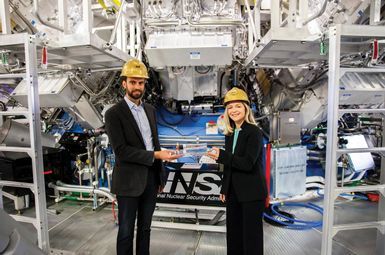
Once derided as “forever 30 years away,” fusion energy has a new swagger. Will it last?

LED lighting is up to 44% more efficient than 4-foot fluorescent tubes, according to a U-M study. Lighting is responsible for 11% of electricity use in commercial buildings and residential basements, garages and shops. Linear recessed lighting systems, which are also called linear fixtures or troffer lights, are among the largest opportunities for energy efficiency improvement, given their long operating hours.
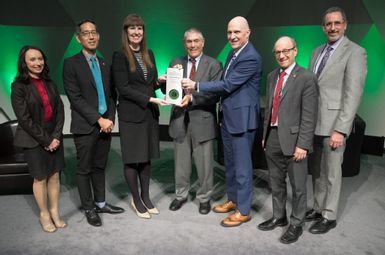
For his work refining agricultural waste into materials for lithium-ion batteries and other sustainable energy technologies, Michigan Engineering Professor Richard Laine has been honored by the US Environmental Protection Agency (EPA.)